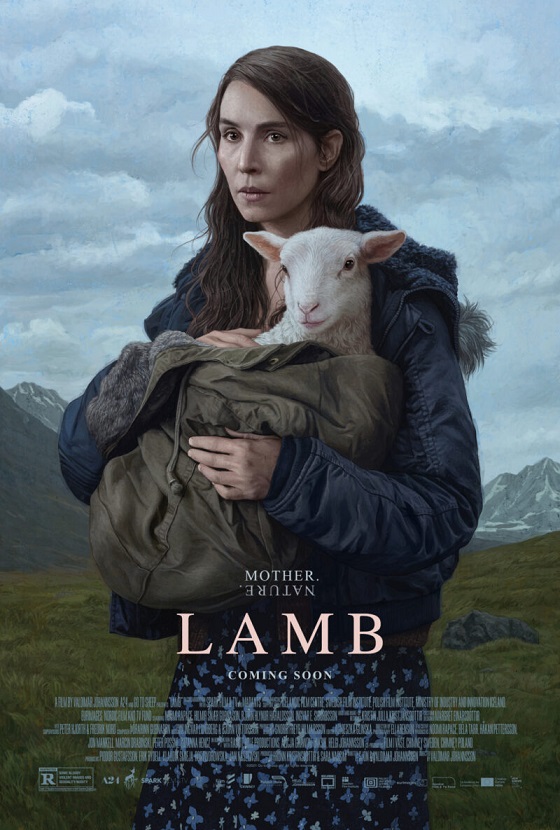
On an Icelandic isolated farm — an idyllic with harsh conditions thanks to mountains, river, and large valley — Maria and Ingvar, a married couple (Noomi Rapace and Hilmir Snær Guðnason), tend to their crops and their flocks of sheep. They are helping birth lambs when one of the newborns turns out to be quite abnormal in a particularly shocking manner. The pair decide to keep and raise the unusual creature, adjusting to a new life with what they call “Ada”. Ingvar’s ne’er-do-well brother Pétur (Björn Hlynur Haraldsson) arrives, after another disastrous life choice it seems, which causes new tension in the previously renewed serenity of the household. Meanwhile, whatever brought Ada to be is still out amongst the mountains.
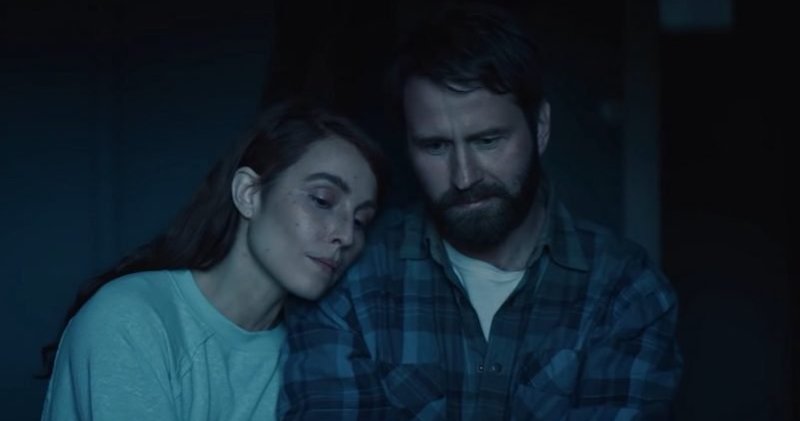
LAMB was directed by first-time feature filmmaker Valdimar Jóhannsson from a script he co-wrote with Sjón. Previously, Jóhannsson made a short and mainly worked in special effects departments for movies that shot in Iceland (including PROMETHEUS, ROGUE ONE, and THE TOMORROW WAR, amongst others). Technically speaking, LAMB is a massive undertaking for any director, let alone one on his first feature. Even with a pared down cast, there is a lot of juggling of schedules and the natural elements as the film takes place over many seasons (or at least needs to appear that it does), not to mention that the CG involved in Ada and some of the other creations AND working with so many animals (which every filmmaker Q&A has convinced me is the absolute worst). Jóhannsson spectacularly meets the challenge and delivers a beautiful film with impressive performances, complex questions, and a fully developed sense of atmosphere. None of that is easy, so he and everyone else involved deserve massive amounts of recognition and applause for what they have accomplished.
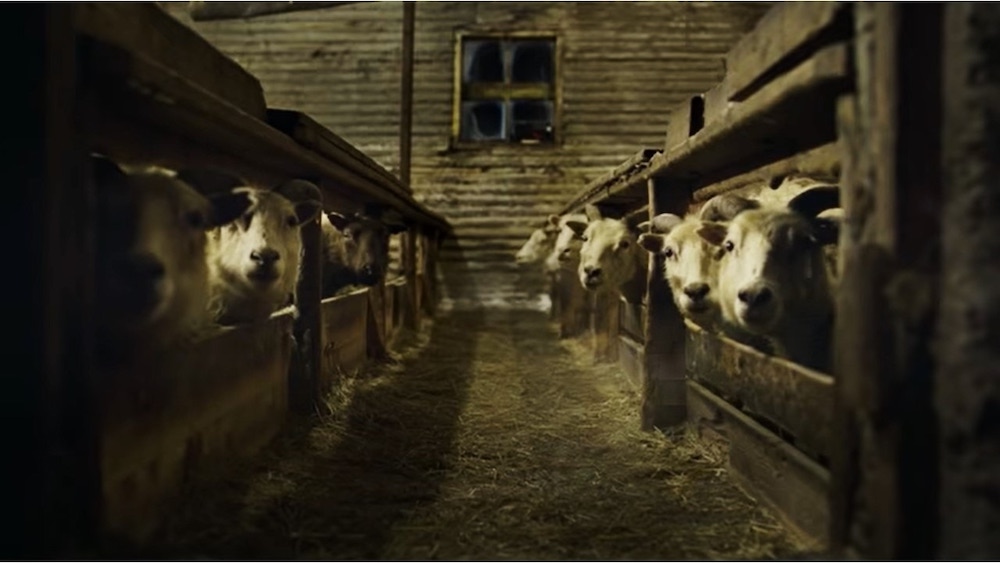
It’s important to underscore that the actual work put into LAMB is impressive because the effect of LAMB feels the opposite. Perhaps it’s a lifetime of having depression. Or maybe it’s a handful of years where events in the world are worsening at ever quickening rates to historic proportions. Or possibly it’s a matter of there being no shortage of other types of entertainment that scratches the itch. Could be an amalgam of some or all these factors. But whatever the reason, I’m over films that largely subsist on nihilistic dread.
Again, Jóhannsson and company deserve a lot of accolades for their technical accomplishments and for maintaining tone in a way that isn’t overly oppressive. It’s not all doom in LAMB, with moments of sweet grace and genuine humor. However, all those lighter touches still exist underneath what feels like a perpetual Sword of Damocles. There are Checkhov’s guns a-plenty planted throughout LAMB and while some dissipate, it is nevertheless moment after moment of “This is where it all comes apart.” That’s the nature of tragedy, of course, the folly that leads to the other shoe to drop and the tower to come tumbling down with it.
But this is ratcheted up in films of this nature; the score consists of a few, sustained notes or chords that are held for multiple minutes, playing liking droning chants of monks at some sort of funeral dirge. There are shots of unforgiving nature that is beautiful but also clearly uncaring about humanity or the feelings therein. Sparse dialogue which mostly exchanges factual information while only partially alluding to deeper emotions, relationships, and situations. Past tragedies and failings are also feinted, but rarely explicitly stated. These will be excused as being “more realistic” despite being used in a film that involves impossible plot developments, but sure — realism is the goal. LAMB checks off all these boxes, along with a constant flirtation of greater disaster and offering up a hard-to-elucidate metaphor.
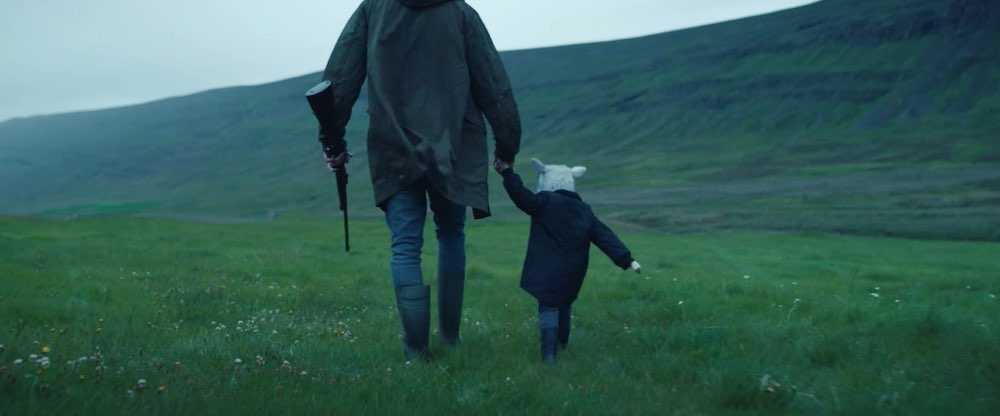
To say it’s “easy” to make a film like this would be reductive and inaccurate. There was a lot of work put in by everyone, and the three main actors truly offer up rich characters even in the shadow of so much dread. But it’s really not difficult to make people feel bad or like things are going to go to shit at any given moment. Especially nowadays. LAMB’s the inherent metaphor is hard to decipher, opening to multiple interpretations and discussions that will populate social media, video essays, website posts, and thesis papers for decades to come. It seems to be about the constant sense of fear around being a parent; not knowing what this strange new creature is or how to properly live with it but trying the best, even when it seems the world is hellbent on ruining your lives and threatening the thing you love. In that sense, LAMB is very much akin to ERASERHEAD, another dread-filled and impressively made film about the fears of imminent parenthood filtered through impossible events, small cast, and sparse dialogue. I loved ERASERHEAD the first few times I saw it decades ago. If I were tasked with watching it now, I doubt it would leave me raving.
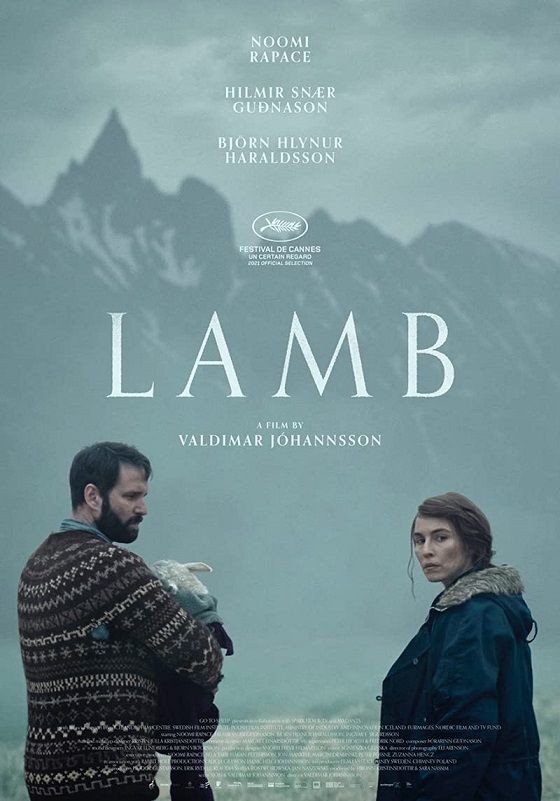
Jóhannsson proves he is a talented artist with a full command over his film. He makes each element — be it the script, the actors, the effects, the settings, the score, the cinematography—work in tandem to create a very specific mood while telling a story open to much broader interpretations without automatically refuting any who approach it. And there’s nothing wrong with some bleakness or sadness in a movie; lord knows the tonal opposite, a film with no stakes or darkness, is even more unbearable. Films should be challenging, and they should contain multitudes of emotions, experiences, voices, and stories. There is a spectrum of sadness and happiness in storytelling and staying on one extreme of depression for an entire tale is just as dishonest and exhausting as staying on the other extreme of manic bliss. The comfort content that so many cinephiles rail against are empty calories that avoid real engagement by staying in the neutral safety of the middle of that spectrum. It’s a hard needle to thread, truly, but it’s also a disappointing experience to simply find oneself at one of those three points on that spectrum. LAMB is a sustained feeling of tense misery, knowing things will end bad but unsure how. It is a finely made film, but it often feels like it’s adhering to a set of instructions on how to whip up existential dread amongst an audience. Jóhannsson is a filmmaker to watch and see what he does next; but hopefully with LAMB out of his system, maybe he can lighten the fuck up a bit.
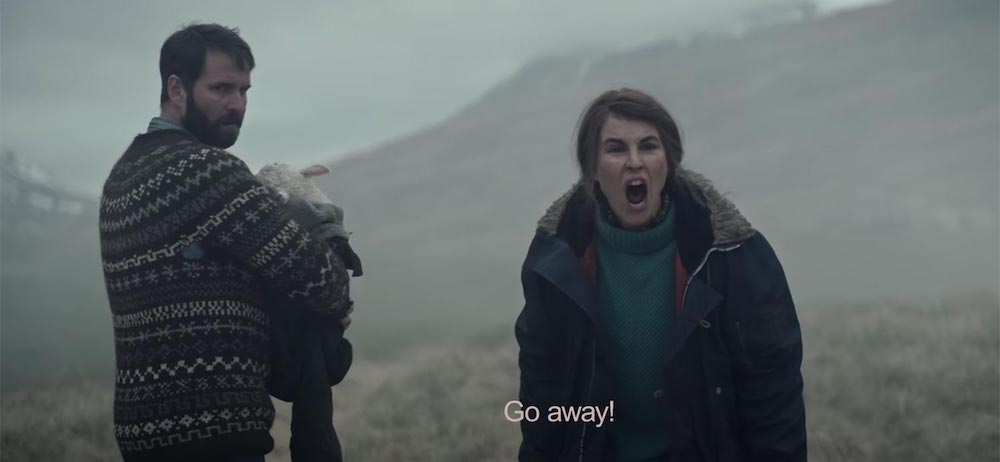
Tags: A24, Agnieszka Glinska, Animals, Béla Tarr, Björn Hlynur Haraldsson, Eli Arenson, Fantastic Fest, Fantastic Fest 2021, Hilmir Snaer Gudnason, Horror, Iceland, Ingvar Eggert Sigurðsson, Noomi Rapace, Poland, Sjón, Sweden, Valdimar Jóhannsson, Þórarinn Guðnason

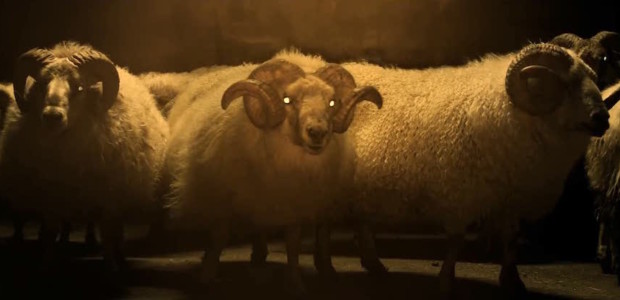

No Comments